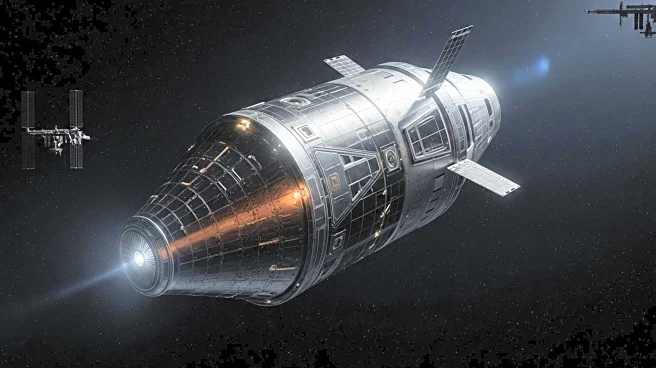What's Happening?
NASA's Cygnus XL spacecraft, operated by Northrop Grumman, encountered engine malfunctions during its mission to deliver five tons of supplies to the International Space Station (ISS). The spacecraft, launched aboard SpaceX's Falcon 9 rocket, was intended to dock with the ISS, where NASA astronaut Jonny Kim was prepared to use the station's robotic arm to secure it. However, issues with the spacecraft's main engine caused delays, affecting its trajectory and preventing the docking procedure. NASA is currently exploring solutions to rectify the situation and ensure the successful delivery of the cargo, which is vital for the astronauts' well-being and the continuation of scientific research aboard the ISS.
Why It's Important?
The incident underscores the complexities and risks associated with space missions, highlighting the need for precise coordination and flawless execution. The delay in cargo delivery impacts the astronauts' daily operations and scientific experiments aboard the ISS. It also serves as a reminder of the challenges faced in space logistics, prompting NASA to evaluate contingency plans and adaptive strategies for future missions. The event emphasizes the importance of international collaboration in space exploration, as the ISS represents a joint effort among multiple countries.
What's Next?
NASA is actively working to resolve the technical issues with the Cygnus XL spacecraft. The agency's technical teams are exploring various solutions to ensure the successful delivery of the cargo. The lessons learned from this incident will inform practices and technologies, enhancing the reliability and safety of future space missions. NASA's commitment to overcoming these obstacles remains unwavering, and the agency is expected to provide updates on the recovery plan and future mission strategies.











